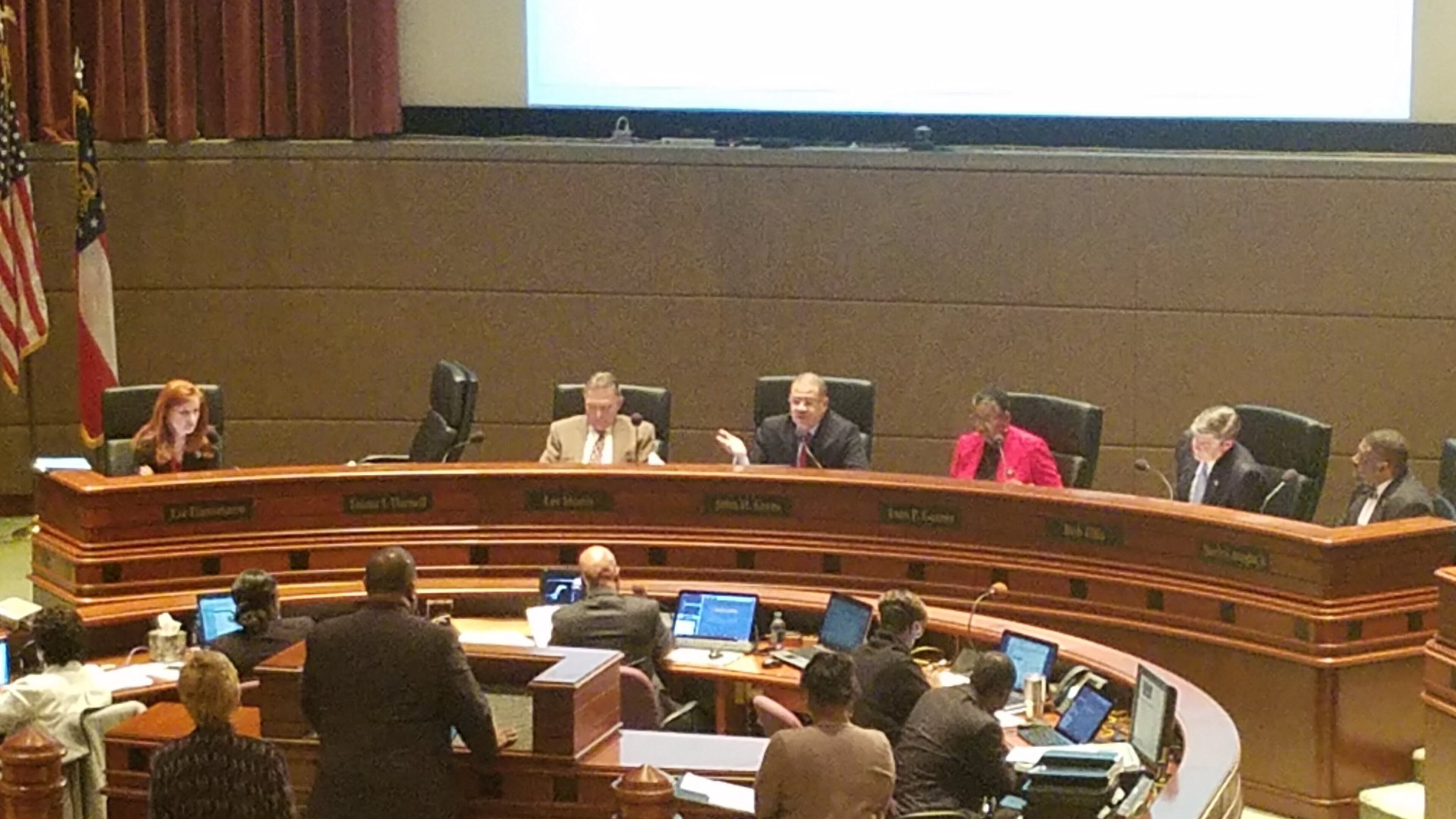Fulton County to spend more on buildings, justice system

Fulton County plans to spend 3.1 percent more in 2017, including more than $10 million to fix up its buildings and $6 million to improve its information technology services.
The moves were part of Fulton's $991 million budget, approved Wednesday. The county has a $662 million general fund budget, a nearly 1 percent increase in expenditures over 2016. Money from that fund pays for everything from the operation of the court system to libraries to county-run elections.
The county also has allocated $6.4 million of a budgeted $7.5 million meant to eliminate case backlogs in its courts and improve the efficiency of the justice system.
And, in response to an outcry from residents, Fulton commissioners decided to boost arts spending, rather than cut it.
Some of Fulton’s increased spending will come from reserves: This year, the county expects to collect $24 million less than it plans to spend. That will reduce the reserve fund to the minimum amount allowed by Fulton law: $105.6 million.
County officials said that Fulton might not need to dip into its savings. In past years, spending has been $30 to $40 million less than planned. The difference largely comes from salary savings as jobs are unfilled. Therefore, they expect to have more than the minimum in reserves at year’s end.
Funding for infrastructure and IT will help fix lingering problems with buildings and services that the county has been working to fix for several years.
The county commission also has been working to improve the efficiency of its justice system. That money is part of a strategy known as the justice reinvestment initiative and will help eliminate a glut of cases that have hamstrung the courts.
The justice funding was approved by the commission after the proposals were vetted by a committee of judges and others. It will pay for one-time expenses to reduce case backlogs, an expansion of the DUI court, additional public defenders, clerks and other personnel to help the courts run more smoothly and other needs of the court system.
Fulton County Commission Chairman John Eaves said in a statement that the moves will help reduce the population at the county jail. Fulton County Superior Court Chief Judge Gail Tusan said that the money would lower recidivism and help the courts’ efficiency.
Arts organizations had feared that Fulton County would cut their funding, and had protested a proposed reduction. The money was restored, and Commissioner Lee Morris said he also wanted to add a “symbolic” $50,000 in additional money to show the organizations that the county was aware of their rising costs. Commissioner Emma Darnell advocated for $200,000 more for Americans with Disabilities Act compliance.
Those extras will be paid for from a discretionary fund.
“I don’t want the house of cards to fall apart over $250,000,” Eaves said, as commissioners debated where to find more money.
Commissioners also approved a four-month budget for the South Fulton special service district. The city of South Fulton becomes operational in the spring, so the county’s financial responsibility only extends to the end of April. The county plans to spend $28.3 million in south Fulton in that period.
The general fund budget was approved unanimously. Only the budget for the Wolf Creek amphitheater faced any opposition; Commissioner Marvin Arrington opposed it. It passed 6-1.



